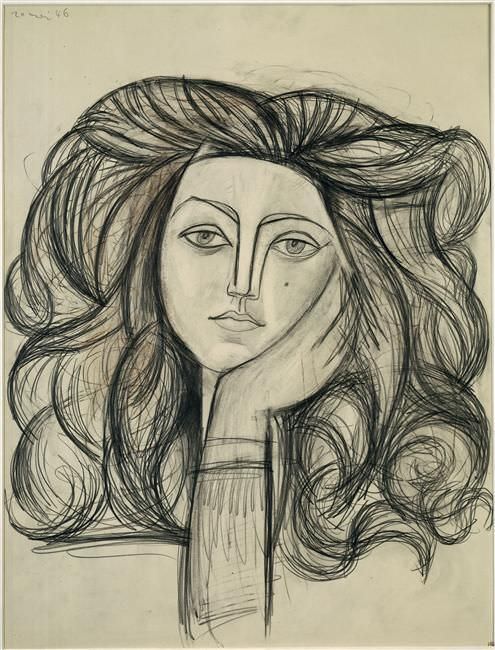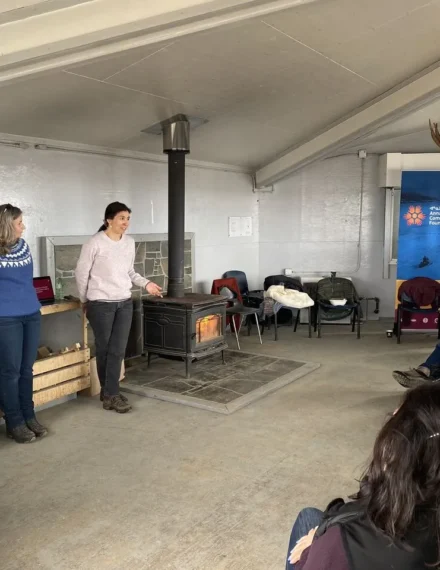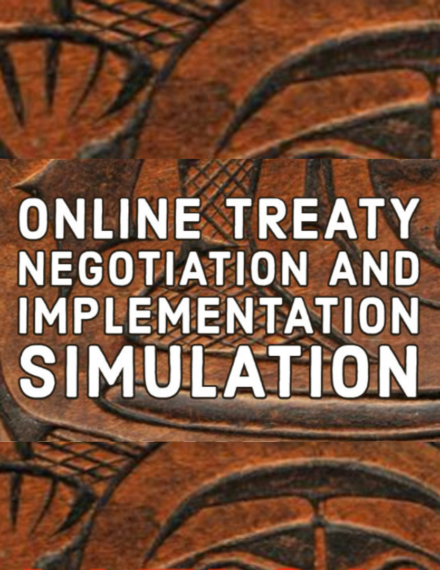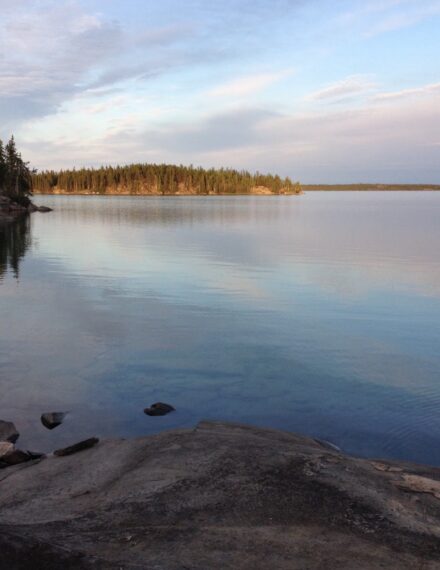
Reflections from Picasso
Jocelyn Joe-Strack is a Champagne and Aishihik First Nations scientist. During the month of February, she is embarking on a speaking tour of Canadian embassies in Europe to sharing her Indigenous perspective on Climate Change with senior diplomats, academics, youth and the public. She is a 2012 Alumna of the Jane Glassco Northern Fellowship program.
The first of my speaking engagements began this week in Spain. Inspiration is all around us. Which is good, because I have been finessing my message. I don’t have a magic solution to climate change based on the lessons of my people – and I don’t think that’s the purpose of these presentations.
Instead I want to find common ground in each of the countries I visit by listening, learning and sharing.

Picasso, Portrait of Françoise. Pencil on paper. 1946.
A few days ago, we visited the Museo Picasso in the beautiful Spanish port city of Malaga. Señor Picasso’s art was intriguing, but it was his quotes I found most interesting.
In one he explains that, as he paints, it’s as if he is on a journey to discover what the painting will become. As he once said: “I begin with an idea and then it becomes something else”.
When Picasso painted abstract, he could only understand the shapes as they presented themselves in that moment through his deep study and the final painting was a representation of the spirit and power the object held beyond immediate sight.
My message is like that. I was invited to Europe and have arrived with an idea that, I believe, will evolve into something else. Like Picasso, I am on a quest to try to realize and deepen an understanding of one of our greatest challenges – humanity’s return to harmony with Earth.
I have come to Europe to share lessons from my people like how we intrinsically depend on our land, language and culture to heal from historical trauma and its lasting impacts. As we reconnect with our original ways of knowing, we become strong and grounded. We aim to root ourselves in “Dän k’e – Our Way”.
Essentially, what we are working towards is wellness and fulfilling our obligation to Earth. My community’s goal is to return to a way of living that respects Earth, that ends the harm we inflict on Earth and stops our contribution to climate change.

Jocelyn and family in La Carihuela, Spain.
We will do this by becoming mentally, spiritually, physically and emotionally healthy. Humans are the original caretakers of Earth and today, we are sick. We suffer from depression, anxiety, and stress. We have obesity, cancer and strokes. We lack purpose and are no longer able to take care of ourselves.
We’ve created this situation through our ambition for economic prosperity. We as humans cannot care for Earth in this state – and we haven’t. Earth is as sick as we are. We MUST be our best selves in order to fulfill our inherent obligation as Earth’s stewards.
Living well as a means to return to harmony is my message. I believe a path to living well in order to care for Earth begins by rebalancing three core values:
- Integrity – our need to heal and rebalance our sense of right and wrong;
- Fulfillment – our need to become capable and reduce our dependency on convenience and consumerism; and,
- Unity – our need to do this as a humanity committed together. We must listen to the world’s Indigenous peoples. We must listen to the youth who will inherit the consequences of our choices. We must change.
It is an exciting time to be sharing this message. I have been following the youth movement here in Europe, soon to be in other parts of the world.
The young students, inspired by the determined Greta Thunberg are demanding change to ensure a better world for their future. I fully support them. I hope I get to march with them!
My leaders in the 1970s went to our Prime Minister with a document called “Together Today for Our Children Tomorrow”. We have lived and walked by ensuring our actions today lead to a better tomorrow for the generations to come. We have forever honoured our youth, our future – that is the Indigenous way.
Here in Spain, my first presentation was to the Master’s Programme in International Solidarity Action and Social Inclusion at the Universidad Carlos III. They study human hardship, such as solidarity for refugee and conflict survivors.
Next, I presented to Fuhem Ecosocial, an organization that provides a space for reflection, encounter and debate that analyzes the trends and profound changes that shape our time from a critical and transdisciplinary perspective.
On Wednesday I spoke to undergraduate Philosophy students at the Universidad Autónoma de Madrid, who study green and sustainability philosophy.
I approach each talk as a researcher. My aim was not to lecture but to explore the notion of prosperity with my audience. How can we work towards a better tomorrow together? How can society uphold the values of Integrity, Fulfillment and Unity?
I believe there are strengths in every culture to foster and I hope to give my best and inspire the best in people so we may walk forward together as a stronger humanity. Wish me empathy, eloquence and belief. Gwä̀naschis.
Jocelyn Joe-Strack is a Champagne and Aishihik First Nations scientist. She is a 2012 Alumna of the Jane Glassco Northern Fellowship program.
Over the next four weeks she is embarking on a speaking tour of Canadian embassies in Europe to share her Indigenous perspective on climate change with senior diplomats, academics, youth and the public. You can follow her travels her, on Twitter @GlasscoFellows or @jocelynjs or by subscribing to The Gordon Foundation newsletter for updates.
Blog 1: An Invitation To Europe
Blog 3: Taking Time To Reflect
Blog 4: Reflections from Picasso
Blog 5: Indigenous reconciliation
Blog 6: Science, Reindeer & Knowledge


